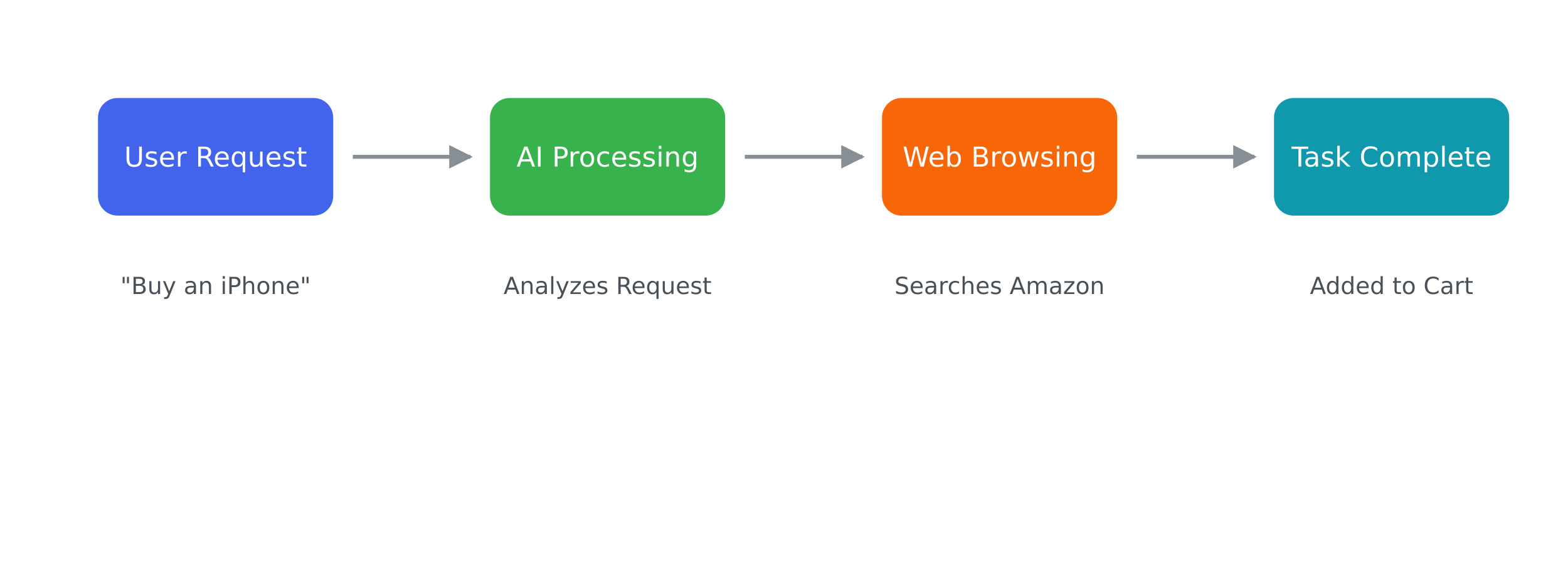Ever wished you could tell an AI to find and buy something for you online, and it just… does it? Well, that’s not just sci-fi anymore. AI agents can now browse the web, add things to your cart, and even set up virtual machines in the cloud—all while you sip your coffee.
Let’s dive into how this works, comparing OpenAI’s Operator with an open-source alternative, and see which one actually gets the job done faster and better.
AI Agents in Action: Finding a iPhone on amazon
Imagine this: You need a iPhone . Instead of manually searching, you just tell an AI agent, and it does all the work for you. That’s exactly what I did using OpenAI’s Operator. It opened a web browser, searched, checked if the item was working, and added it to my cart.

Sounds awesome, right? Well, there’s a catch. Operator is only available to pro users, and it costs a hefty $200 a month. So, I went looking for an open-source alternative—and found Browser Use, a free tool that does the same thing (and maybe even better).
Browser Use vs. OpenAI Operator: Which One Wins?
I decided to put Browser Use and Operator head-to-head in a real-world test: setting up a virtual machine (VM) on a cloud hosting platform.
The Setup:
- Browser Use (open-source AI agent)
- OpenAI Operator (paid AI agent)
- Task: Create a VPS, set a root password, and apply a coupon code
- Bonus test: See if they can solve a CAPTCHA
Round 1: Creating a VPS
Browser Use had a big advantage: it could use my actual web browser, meaning it kept me logged in. Operator, on the other hand, struggled with login issues and needed more manual input.
Winner? Browser Use! It set up a VPS quickly—though it hilariously tried to buy 11 servers instead of one. Still, better than Operator, which got stuck halfway through.
Round 2: Solving a CAPTCHA
One major flaw of Operator? It can’t solve CAPTCHAs. It just sits there, waiting for me to do it manually. So, I tested Browser Use with a CAPTCHA-solving task.
Did it succeed? Not quite. It managed to click some squares, but it didn’t fully solve the challenge. Close, but no cigar.
Winner? Neither. CAPTCHA remains a hurdle for both AI agents.
Local vs. Cloud AI: What’s Faster?
Another thing I wanted to test was speed. Running AI locally (like with LLaMA models) is great, but cloud-based AI models like Claude 3.5 Sonnet are usually much faster.
So, I tested Browser Use with different AI models:
- LLaMA (local AI): Slow and often failed simple tasks
- Claude 3.5 (cloud AI): Blazing fast and got everything done instantly
If speed is your priority, cloud-based AI wins hands down.
Final Thoughts: Should You Try Browser Use?
Absolutely. If you’re into AI automation and want to control your own AI agents without paying $200 a month, Browser Use is a fantastic option. It’s open-source, customizable, and runs locally—so no one’s tracking what you do .
Some key takeaways:
- Browser Use is more flexible than Operator
- Local AI is cool, but cloud AI is faster
- Neither AI can solve CAPTCHAs (yet)
- The possibilities for automation are endless—from online shopping to job applications
Want to see this in action? Try out Browser Use, play around with AI automation, and let me know what cool things you come up with!
